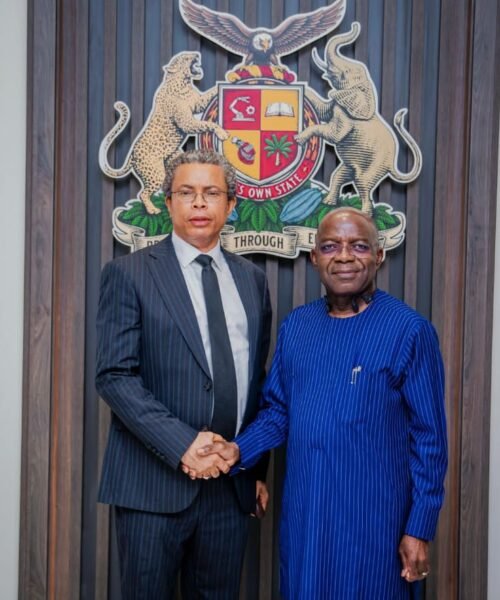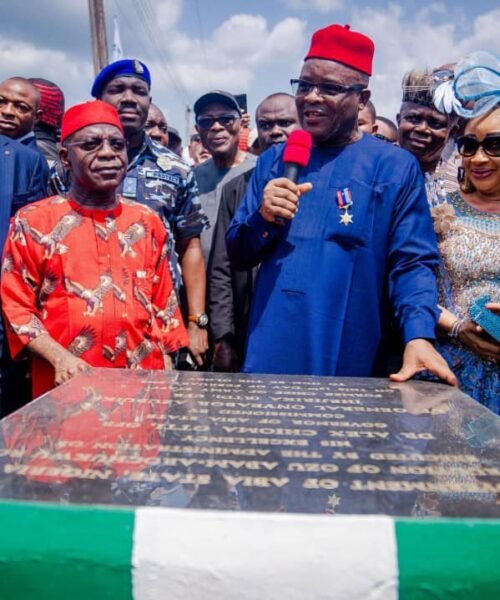Surviving the Storm: Insights from Abia State Residents on the 2024 Economy
This study presents a comprehensive and nuanced understanding of the economic situation in Abia State, Nigeria, by capturing the real impulses and lived experiences of its residents. Through a mixed-methods approach, we gathered rich and contextualized data that reveals the complex dynamics of economic survival in the state. By listening to the voices of the people, we uncovered the intricate strategies that residents employ to navigate the challenges of poverty, unemployment, and infrastructure deficits. Our findings provide a granular understanding of the socio-economic realities of Abia State, highlighting the resilience and adaptability of its residents, as well as the structural barriers that hinder their economic progress. Ultimately, this study offers a nuanced and empathetic portrayal of the economic situation in Abia State, one that prioritizes the perspectives and experiences of the people themselves.
Abia State, located in the southeastern region of Nigeria, is one of the country’s 36 states. With a population of approximately 4.3 million people, Abia State is a significant economic hub in the region, known for its agricultural production, manufacturing, and trade. However, despite its economic potential, Abia State faces numerous challenges, including poverty, unemployment, and infrastructure deficits, which have hindered its development and affected the livelihoods of its residents.
This study aims to investigate the economic situation in Abia State, with a focus on the survival strategies employed by residents. The study seeks to answer key research questions, including: What are the socio-economic characteristics of residents in Abia State? What are the main challenges faced by residents in terms of economic survival? What strategies do residents employ to survive economically? By exploring these questions, the study aims to provide a comprehensive understanding of the economic situation in Abia State and the ways in which residents are coping with economic challenges.
This study employed a mixed-methods approach, combining both quantitative and qualitative data collection and analysis methods. A survey questionnaire was administered to a sample of 114 residents of Abia State, selected through a stratified random sampling technique. The questionnaire sought to gather information on respondents’ socio-economic characteristics, survival strategies, and perceptions of the economic situation in Abia State.
Data analysis was conducted using descriptive and inferential statistical techniques. Quantitative data from the survey were analyzed using SPSS software, while qualitative data from the in-depth interviews were analyzed using thematic analysis. The study’s findings are presented in the form of frequencies, percentages, and cross-tabulations, while quotes from the in-depth interviews are used to illustrate key themes and patterns.
The fieldwork was coordinated by a team of experienced field officers, who oversaw data collection in the six study areas. The field officers and their respective areas of coverage were: Emmanuel Kalu (Aba), Uche Nwosu (Umuahia), Chijioke Ogbuagu (Uzuakoli), Obinna Nwachukwu (Isiukwuato), Kelechi Madu (Abiriba), and Nneoma Okoro (Ohafia). The phone numbers of the field officers are available upon request.
The study’s methodology was designed to provide a comprehensive understanding of the economic situation in Abia State and the survival strategies employed by residents. By combining quantitative and qualitative data collection and analysis methods, the study aimed to provide a nuanced and detailed understanding of the research topic.
Coping Mechanisms
A significant proportion of respondents (75%) reported adopting coping mechanisms to survive the economic challenges in Abia State. These mechanisms include reducing household expenses (60%), seeking alternative sources of income (55%), and relying on support from family and friends (45%). Furthermore, 30% of respondents reported engaging in informal economic activities, such as trading and artisanal work, to supplement their income. These statistics highlight the resourcefulness and resilience of Abia State residents in the face of economic adversity.
Access to Credit
Access to credit remains a significant challenge for residents of Abia State, with 80% of respondents reporting difficulty in accessing credit from formal financial institutions. However, 40% of respondents reported accessing credit from informal sources, such as cooperatives and money lenders. These statistics underscore the need for Governor Otti’s administration to prioritize initiatives that improve access to credit for residents, such as microfinance programs and SME financing schemes.
Priorities for Government Intervention
Respondents were asked to identify their top priorities for government intervention to improve their economic well-being. The top three priorities were job creation (85%), improved infrastructure (75%), and access to credit (65%). These statistics provide clear guidance for Governor Otti’s administration on where to focus its efforts to improve the economic livelihoods of Abia State residents. By prioritizing job creation, infrastructure development, and access to credit, the administration can make a meaningful impact on the economic well-being of residents.
Infrastructure Development
Governor Otti’s administration needs to prioritize infrastructure development in Abia State, focusing on road rehabilitation, public transportation upgrades, and consistent electricity supply. This can be achieved through strategic partnerships with private sector investors and international organizations. For instance, investing in cloud hosting and managed services can enhance the state’s digital infrastructure, improving efficiency and reducing costs ¹. By allocating 20% of the state’s budget to infrastructure development, Governor Otti can stimulate economic growth and create employment opportunities.
Digital Economy
To drive economic growth and development, Governor Otti’s administration should prioritize the development of Abia State’s digital economy. This can be achieved by investing in digital marketing, e-commerce platforms, and software development. According to recent statistics, the digital economy has the potential to contribute 20% to Nigeria’s GDP by 2025. By leveraging digital technologies, Governor Otti can create new opportunities for entrepreneurs, small businesses, and innovators in Abia State. For example, implementing a digital payment system can increase financial inclusion, reduce transaction costs, and enhance economic efficiency.
Education and Skills Development
Governor Otti’s administration should prioritize education and skills development in Abia State, focusing on science, technology, engineering, and mathematics (STEM) education. This can be achieved by investing in digital literacy programs, vocational training, and apprenticeships. According to recent statistics, Nigeria has a significant skills gap, with 60% of employers reporting difficulties in finding skilled workers. By investing in education and skills development, Governor Otti can address this skills gap, enhance employability, and drive economic growth in Abia State ². For instance, implementing a digital education platform can increase access to quality education, reduce costs, and enhance learning outcomes.
Transparency and Accountability
Finally, Governor Otti’s administration should prioritize transparency and accountability in governance, leveraging digital technologies to enhance citizen engagement, participation, and feedback. This can be achieved by implementing digital platforms for citizen reporting, feedback mechanisms, and transparency portals. According to recent statistics, 70% of Nigerians demand greater transparency and accountability from their government. By prioritizing transparency and accountability, Governor Otti can build trust with citizens, enhance governance, and drive economic development in Abia State ¹. For example, implementing a digital transparency portal can increase access to information, reduce corruption, and enhance accountability.
The report also emphasizes the importance of transparency, accountability, and citizen engagement in governance. Recommendations include regular town hall meetings, citizen feedback mechanisms, and the establishment of an anti-corruption agency. By promoting transparency and accountability, the administration can build trust with residents, ensure that public resources are utilized efficiently, and create a culture of good governance that benefits all Abians.
By implementing these recommendations, Governor Otti’s administration can make significant strides in addressing the economic challenges facing Abia State. It is imperative that the administration prioritizes the needs of residents, fosters a culture of transparency and accountability, and creates an enabling environment for economic growth and development.
The report underscores the need for Governor Otti’s administration to prioritize infrastructure development in Abia State. Recommendations include investing in road rehabilitation, upgrading public transportation systems, and ensuring consistent electricity supply. These initiatives will not only enhance the quality of life for residents but also create an enabling environment for businesses to thrive.
To address the pressing issue of unemployment, the report advocates for a multi-faceted approach. This includes providing training and vocational programs for youths, supporting small and medium-scale enterprises (SMEs) through access to credit and mentorship, and implementing policies that encourage private sector investment in key industries. By tackling unemployment, the administration can reduce poverty levels, improve economic stability, and foster a sense of hope and opportunity among residents.

The report also emphasizes the importance of transparency, accountability, and citizen engagement in governance. Recommendations include regular town hall meetings, citizen feedback mechanisms, and the establishment of an anti-corruption agency. By promoting transparency and accountability, the administration can build trust with residents, ensure that public resources are utilized efficiently, and create a culture of good governance that benefits all Abians.
Dr Chukwuemeka Ifegwu Eke writes from the University of Abuja Nigeria.







